
Clive Bull 1am - 4am
29 October 2023, 12:53
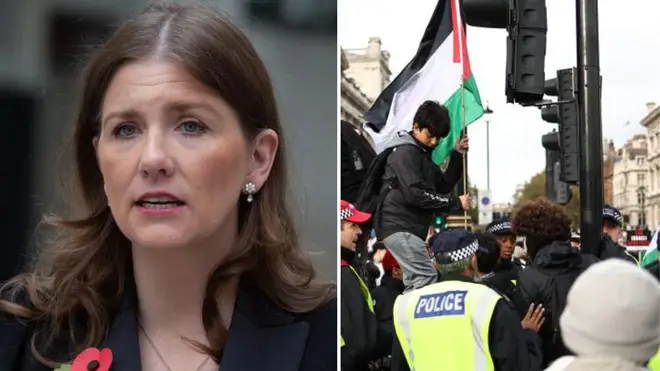
Police need to enforce the laws as they stand, rather than being given new ones, a Cabinet minister has told LBC, amid concerns of officers failing to tackle extreme behaviour at Palestine protests in London.
Met officers have made around 100 arrests since the protests began three weeks ago, many of them for public order offences and assaulting emergency workers.
But police have come under fire for not arresting people calling for jihad, and holding up signs and banners that referred to Muslim armies.
Met chief Sir Mark Rowley has said his officers cannot enforce good taste, and called for more legal clarity from the government.
Michelle Donelan told LBC on Sunday that the Met doesn't need new laws - they just need to use the legal framework that currently exists.
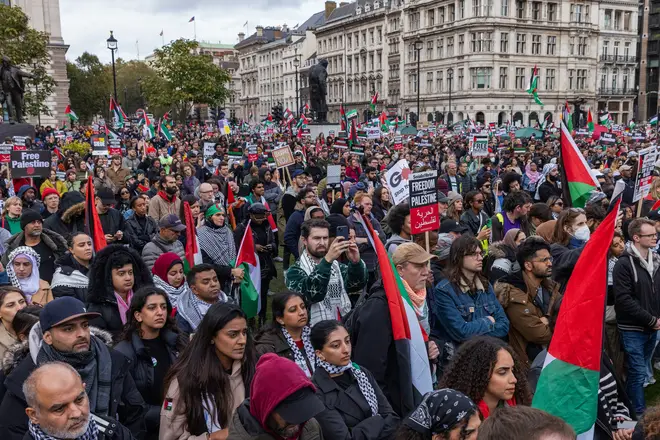
The science minister told Paul Brand: "The Home Secretary has been having multiple conversations with the police on this matter because we do believe that we have the full force of the law already - it needs to be applied.
"We’ve got the terrorism act [for] people who are promoting Hamas, a proscribed terrorist organisation, we’ve got the public order act as well.
"There are those tools at the fingertips of police, they just need to be ensuring that they are exercising them.
"We have already seen some arrests as well so this is a live conversation being undertaken by the Home Secretary herself."
Last week's protest sparked concern when a Hizb ut-Tahrir grouping called for jihad - but police said they weren't going to make arrests because the word has different meanings in Arabic.
This week's protest saw people demanding 'intifada', an apparent reference to Palestinian armed uprisings against Israel.
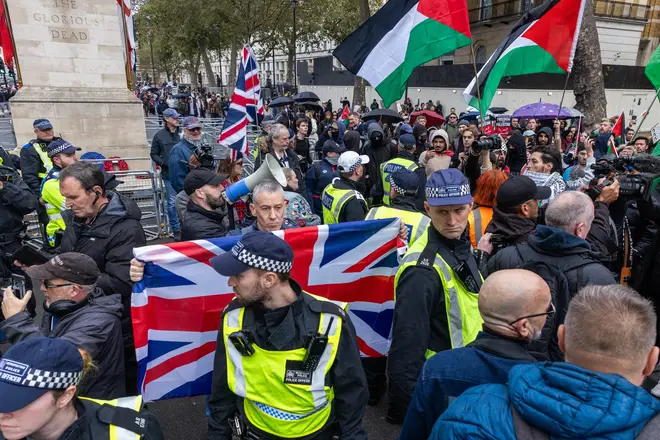
Sir Mark said that the laws needed updating to tackle extremists.
"I think the law we have designed around hate crime and terrorism in recent decades hasn't taken full account of the ability extremist groups to steer around those laws and propagate some pretty toxic messages through social media," Mr Rowley told Sky News.
"Those lines probably need redrawing. It's a really difficult thing to do. if you look at the counter extremism Commissioner report. It has many examples in there...one of the things we found is countries across the world which have different frameworks which have some advantages."
"For example, Hizb ut-Tahrir who were protesting at the weekend, some of their protests have caused deep concern...they are banned in Germany, they are also banned across most of the Muslim world."
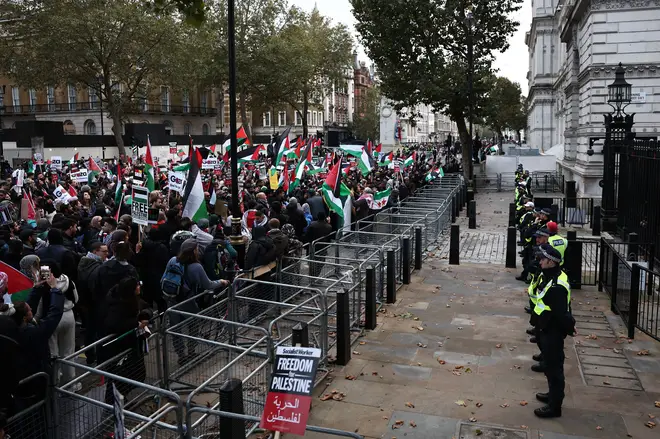
He went on: "There are frameworks which are more assertive in some respects than ours.
“We are accountable for the law. We cannot enforce taste or decency but we can enforce the law," he added.
A Downing Street spokesperson said later: "Some of these scenes will have likely been incredibly distressing for people to witness, not least to the UK’s Jewish community who deserve to feel safe at what must be an incredibly traumatic time," Rishi Sunak's spokesperson said.
"We do believe the police have extensive powers in this space and we will continue to discuss with them so there is clarity and agreement about how they can be deployed on the ground.”
Asked whether there were plans to give police more powers, he said: "I'm not aware of any, no."
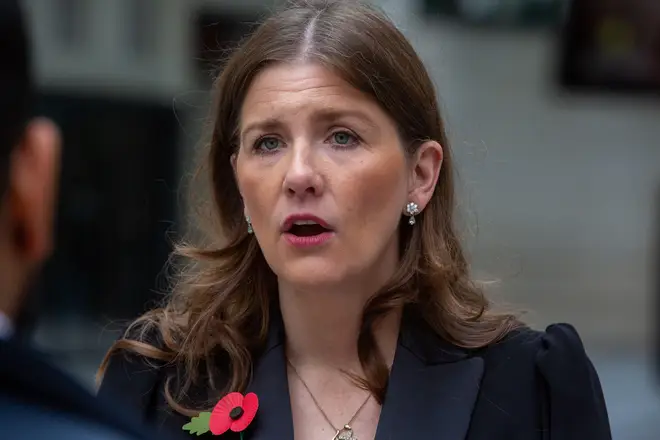
Speaking on Sunday, Ms Donelan also reasserted the goverment's stance of calling for a "humanitarian pause" to allow aid into Gaza, rather than a ceasfire.
She said that demands for a ceasefire were "misguided".
Ms Donelan said a ceasefire would enable Hamas "to double down, to regroup, and it would actually strengthen their abilities to terrorise not only Israel but also the Palestinian people."
She added that the government has "been focusing on getting humanitarian aid in".
"We sent 21,000 tonnes last week. We’ve increased our investment to £30 million to support the area, and this is a priority for us as a government."